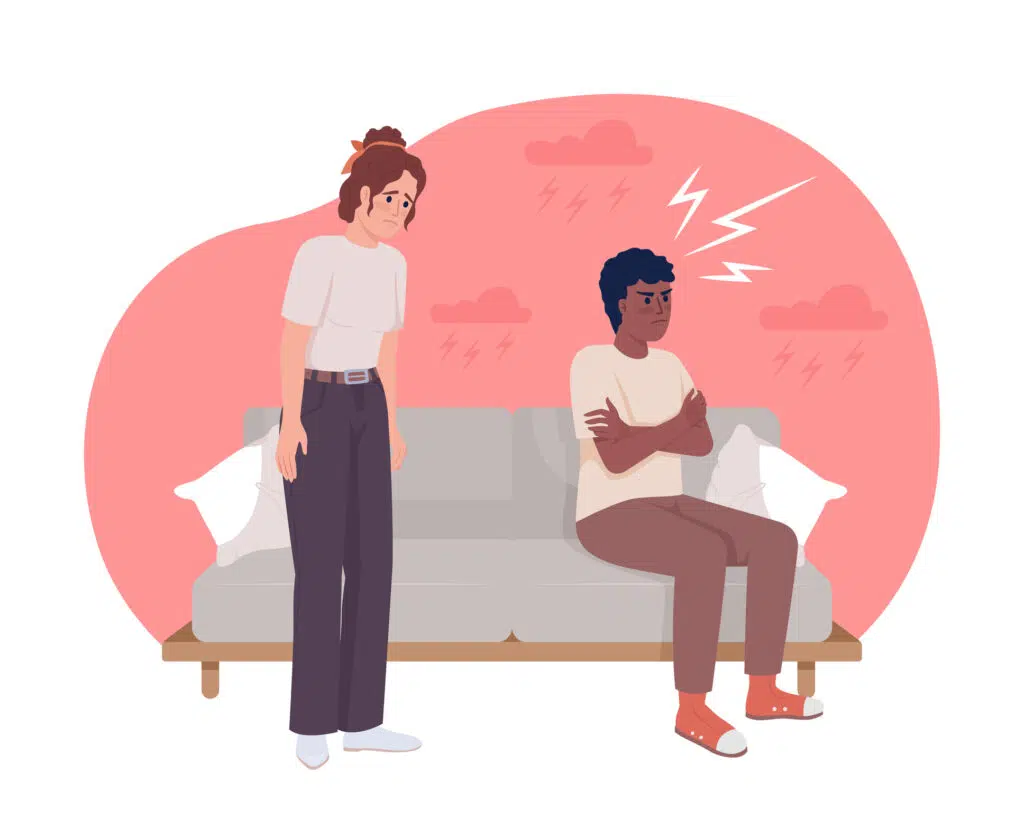From Stress To Success: Strategies For Managing Anxiety In The Workplace

From looming deadlines and jam-packed schedules to unrealistic workloads, many people work around the clock, some even into the weekend. If you’re questioning whether a work/life balance even exists, it may be time to ask for help.
While some people love the hustle, and others enjoy what they do, one thing is clear: many professionals deal with work anxiety and stress.
Ultimately, it doesn’t matter how much you love the chaos or how good you are at what you do; prolonged and unmanaged periods of anxiety can lead to serious issues. Finding ways to deal with workplace anxiety can help you enjoy your work and become more successful.
Workplace Anxiety And Its Impact On Mental Health
First, let’s look at some standout statistics on workplace anxiety, stress, and mental health.
- The CDC reports that 40% of American professionals are highly stressed at work.
- The American Psychological Association states that more than a third of US professionals deal with chronic work stress daily.
- 56% of employees say that stress and anxiety impact workplace performance.
Altogether, that’s millions of people experiencing complex mental health challenges regularly at work.
Workplace anxiety is the persistent worry, fear, or tension regarding your work. It can result from many factors, including:
- High-pressure work situations
- Difficult work conditions
- Job insecurity
- Lack of support from management and colleagues.
Employee stress costs organizations and businesses billions of dollars in medical bills and lost work hours yearly. However, it’s more than financial consequences. The effects of job-related anxiety and stress on employees’ physical and mental well-being can take a toll on the success of an organization.
For that reason, more and more businesses are investing in workplace mental health to help employees cope with anxiety and stress. If left unchecked, prolonged anxiety at work can impact an employee’s productivity and mental and physical health.
When it comes to mental health, job-related anxiety can manifest itself in several ways. Tension, excessive worry, and fear about work-related tasks are all ways it can impact your mental health.
Recognizing The Signs And Symptoms Of Anxiety At Work
Work is an essential aspect of our lives. Loving what you do and getting satisfaction from it is vital for your overall well-being. While it’s common to experience a healthy amount of stress at work, it’s important to watch out for signs of workplace anxiety.
If you ever find yourself stressed at work, know that it’s normal and happens to everyone. The problem occurs when anxiety becomes overwhelming and prevents you from living your best life. When that happens, it’s important to recognize that you may need extra help, like speaking to a therapist.
Having work-related anxiety can have a significant impact on your career. Some people even make life-altering decisions based on that anxiety. For instance, someone may feel they need to turn down a promotion if it involves constant travel, speaking in public, or extra management responsibilities.
Physical and emotional manifestations of anxiety differ from one person to another. People dealing with anxiety at work can even become desensitized to the feeling. They may not notice the anxiety getting out of control until it starts affecting their performance or daily life.
Workplace anxiety symptoms you should look out for include:
- Increased feelings of tiredness or achiness
- You become short-tempered or irritable
- You come down with sickness more than usual
- Your nights feel better than your morning when you have to go to work again
- You have difficulty concentrating and may experience brain fog
- You feel anxious whenever you have to check your work emails or Slack messages
- You find yourself fantasizing about quitting or losing your job
- You have panic attacks or feel physically sick whenever you think about work or someone brings up the topic of work
- You become intolerant or afraid of feedback
- You procrastinate more than usual on things that involve your job
- You take a lot of time off or miss deadlines
6 Strategies for Managing Workplace Stress and Anxiety
You can adopt a few strategies to manage workplace stress and anxiety.
1. Find And Adopt Effective Coping Methods
No matter how much you love what you do, every job has stressful elements. When dealing with workplace stress and anxiety, avoid unhealthy coping mechanisms like alcohol and junk food. Instead, try to develop healthier habits that help you relieve stress and make you more productive and creative.
Seek workplace support from upper management and your colleagues when anxiety creeps in. Effective coping mechanisms could also include exercise and employee assistance programs that address anxiety and other mental health challenges by creating an open dialogue about mental health in the workplace.
These programs can offer confidential counseling and referrals to mental health professionals, fostering a positive culture where employees actively seek help when their mental health takes a hit.
2. Avoid Multitasking
One of the causes of workplace anxiety and stress is feeling overwhelmed, which can happen if you struggle to manage your tasks effectively. It’s tempting to multitask to get more work done within the shortest time, but in the long term, this only negatively impacts your mental health, making you feel stressed.
Instead, concentrate on one task at a time and practice stress management strategies like taking a break when feeling stressed and relaxation techniques in the workplace like meditation. If you are in a management position, consider offering mindfulness exercises for employees to cope with stress and anxiety to become more productive.
3. Seek Support At Work
Long hours, tight schedules, and increasing workloads can leave you feeling disengaged, emotional, exhausted, and stressed, negatively impacting your mental health. When you feel like the world is caving in, seek help at work.
Most organizations understand how mental health can impact productivity and have measures to help employees, like having flexible work arrangements or encouraging time off and breaks when someone feels overwhelmed.
Away from what your organization can do for your mental health, consider work-life balance tips like effective time management. Prioritize and organize tasks so you have time for work responsibilities and personal pursuits like spending time with family, personal goals, and hobbies.
4. Don’t Forget About Your Work-Life Balance
Your organization can help to reduce stress and anxiety, from destigmatizing mental health in the workplace to providing resources for managers to support employees with anxiety and manager training on mental health issues.
Remember that your work-life balance is vital in managing workplace anxiety. Set time aside to enjoy other things outside work, like spending time with family and friends, exercising, and doing things you love.
5. Be Realistic With Your Workload
While you may have what it takes to handle a larger workload, it’s important to be realistic. Don’t take on too much that your life mainly revolves around work. Know what you can handle and leave the rest for another day. Knowing when to take a break can positively impact your mental health.
No doubt, there are times when you work around the clock to hit that deadline, or you have a crazy week because of a major presentation. It’s normal to knuckle down at times and dedicate yourself to work. But, if you have no time outside of work for yourself or not enough time to complete tasks daily, then it’s almost impossible to create a realistic workload that sets you up for success.
6. Practice Mindfulness and Deep Breathing
One technique for managing workplace anxiety and stress is mindfulness. Regular meditation can help reduce anxiety, stress, and depression while helping improve focus, sleep, and general well-being.
Another way to cope with work-related anxiety is deep breathing exercises. Usually, when we’re stressed, our breathing tends to be rapid and shallow, which can exacerbate feelings of panic and anxiety. Slowing down and deepening your breaths can help activate your body’s relaxation response, reducing stress and promoting feelings of calm.
Workplace stress and anxiety are complex, and everyone is going through their own unique experience. While strategies to manage workplace anxiety are crucial in regulating stress, worry, and emotions, you may need to consider addressing the core problem. Figuring out if it’s you, the job, or a combination of the two is a process that takes time.
There are certain things you can implement into your routine to start coping and dealing with anxiety in the workplace. If you’re experiencing unhealthy anxiety levels in the workplace and struggling with stress, consider talking to an anxiety therapist before it becomes too much. A mental health professional can help you determine the cause of the anxiety and help you figure out your next steps. You don’t need to go through workplace stress and anxiety alone.

How to Move On After a Friendship Breakup
Friendship breakups can sting just as much as a romantic breakup. After all, you’re experiencing a loss of shared history and an understanding of each other that can leave you feeling lonely and isolated. Not all friendships are forever, but moving on from the loss of a friendship does take time and some self-compassion.

Signs You’re in a Toxic Relationship
A toxic relationship can chip away at your well-being and happiness. Toxic partners can be manipulative and charming, making it difficult to recognize the signs that you’re in a toxic relationship. You deserve to be in a supportive and healthy relationship.

10 Common Marriage Reconciliation Mistakes to Avoid After Infidelity
Infidelity can leave couples devastated. If you’ve been affected by infidelity and want to salvage your relationship, rebuild trust, or make a tough decision, keep reading for 10 common reconciliation mistakes to avoid after infidelity.

Survey: 72% of Americans are Stressing About the Upcoming Presidential Election
Political viewpoints in the U.S. have always been contentious, but is the impact of politics in the United States making it difficult for people to live their everyday lives? With some anticipating another brutal and long campaign season ahead of the upcoming 2024 presidential election, nearly half of Americans say politics is negatively impacting their mental health.




